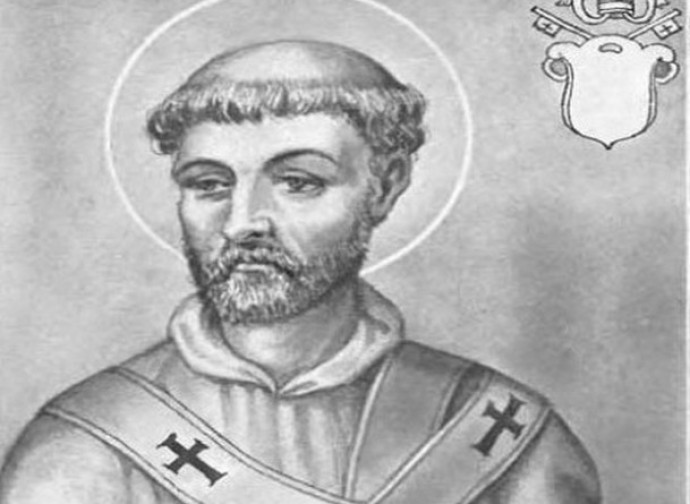Saint Hyginus
Saint Hyginus, the ninth pope, was elected in 138 after the death of Saint Telesphorus.

Saint Hyginus, the ninth pope, was elected in 138 after the death of Saint Telesphorus, who, according to Saint Irenaeus of Lyons (130-202), suffered a "glorious martyrdom". The Liber Pontificalis suggests that Hyginus was originally from Athens and that he instituted the Minor Orders, as well as defining the grades of the ecclesiastical hierarchy, possibly drawing a clearer distinction between the offices of priests and those of deacons. According to Irenaeus' treatise Adversus haereses ("Against heresies"), Hyginus' pontificate saw the arrival in Rome of the Egyptian Valentinus, founder of the esoteric Gnostic school, by which faith and knowledge were the prerogatives of a select few.
The gnostic Syrian Cerdo also settled in Rome under Hyginus. Saint Irenaeus indicates Cerdo as a "predecessor of Marcion", the heresiarch from Pontus who, in the following few years, would boost Cerdo's school "with impudent blasphemies", rejecting the Old Testament and constructing his own personal faith from carefully chosen passages of the New Testament deliberately omitting parts of passages. (A considerable quantity considering the number of Old Testament quotations disseminated in the New; In fact Marcion eliminated three whole Gospels out of four). Hyginus therefore had to counter these errors, thus confirming the Christian community in the faith.
Tradition has that Hyginus also instituted the figures of godparents for baptism. In his Ecclesiastical History, Eusebius of Caesarea reports that Hyginus died after four years of pontificate, therefore in 142 (Liber Pontificalis indicates 149), and was succeeded by Saint Pius I. Hyginus was buried near the body of Saint Peter.
